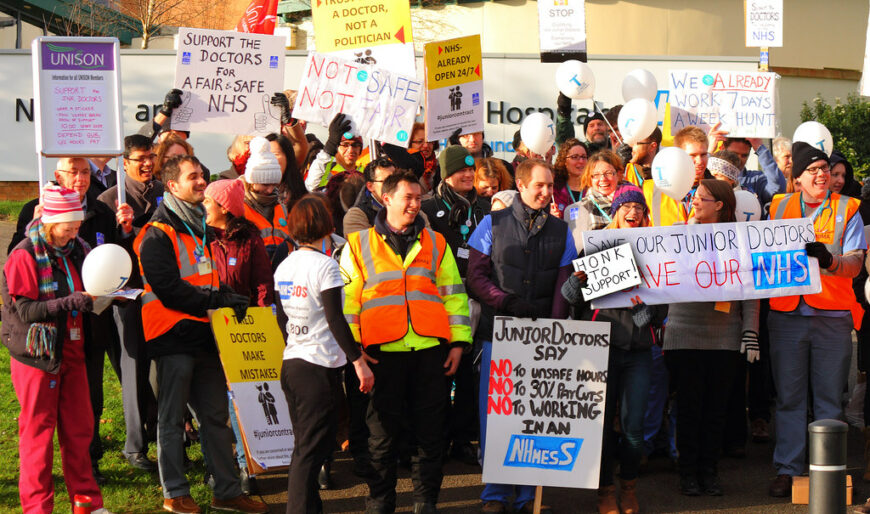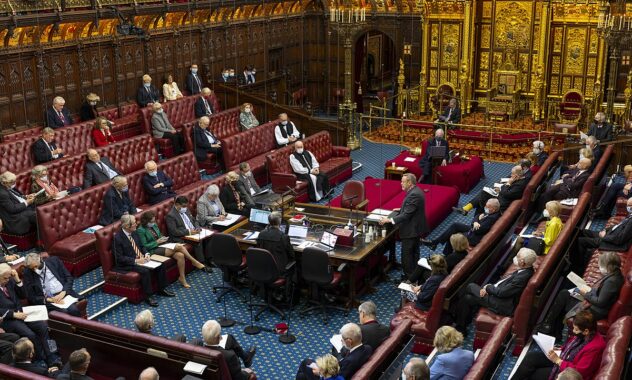Government considers minimum service levels in hospitals during strikes
The government is considering introducing regulations that would require some doctors and nurses to work during strikes

- Minimum service levels (MSLs) could be extended during strikes
- Nurses and doctors could be covered by new regulations
- Comes as government once again urges BMA to call off strike action
The government is considering introducing MSL regulations that would require some doctors and nurses to work during strikes, the Health and Social Care Secretary has announced.
The consultation, launched on Tuesday 19 September 2023, considers introducing MSLs that would cover urgent, emergency and time-critical hospital-based health services – which could cover hospital staff including nurses and doctors – and seeks views on a set of principles for setting MSLs in regulations. It will also seek evidence to inform decisions on the expansion and scope of MSLs.
Health and Social Care Secretary Steve Barclay said:
“This week’s co-ordinated and calculated strike action will create further disruption and misery for patients and NHS colleagues.
My top priority is to protect patients and these regulations would provide a safety net for trusts and an assurance to the public that vital health services will be there when they need them.
Doctors who started their hospital training this year are receiving a 10.3% pay increase, with the average junior doctor getting 8.8% and consultants are receiving a 6% pay rise alongside generous reforms to their pensions, which was the BMA’s number one ask.
In the face of ongoing and escalating strike action, we will continue to take steps to protect patient safety and ensure the health service has the staff it needs to operate safely and effectively.”
Professor Phil Banfield, chair of the British Medical Association council, said its members always ensure a minimum level of staffing is preserved during strike action.
“We have always maintained that consultants and junior doctors together, will never stage a full walk-out and we have been clear that we are not planning to do so, with urgent and emergency care continuing to run. It is disingenuous for the secretary of state to say otherwise.
These regulations add further to what we’ve seen from this government in attempting to stifle the right for doctors to act collectively and fight for better pay and conditions in their workplace. Even before the recent Strikes Bill, the UK has some of the tightest restrictions on trade union activity in Europe, and now with threats that could see individuals sacked if they do not comply with these new laws it feels like another kick in the teeth to our profession, the very experts this government needs to deliver on its waiting list promise to the public.”
He reiterated the BMA’s call for the government to “drop its opposition to negotiating a new pay deal and get round the table with doctors with a credible offer”.
He added: “Rather than focusing on strike days, ministers should be looking to make sure that our health service is safely staffed for 365 days a year.”
TUC general secretary Paul Nowak said:
“Instead of fixing our crumbling public services and sorting out the chronic retention and recruitment crisis blighting our NHS, ministers are threatening nurses and doctors with the sack for exercising their right to strike.
“Everyone knows NHS professionals already provide safe levels of staffing during industrial action.”
He said the Strikes Act, which has yet to come into force, will “only sour industrial relations and worsen disputes”.
“They’re unworkable, undemocratic and almost certainly in breach of international law. That’s why we won’t rest until this act has been repealed. And we won’t stand by and let workers get sacked for defending their pay and conditions,” he said.







